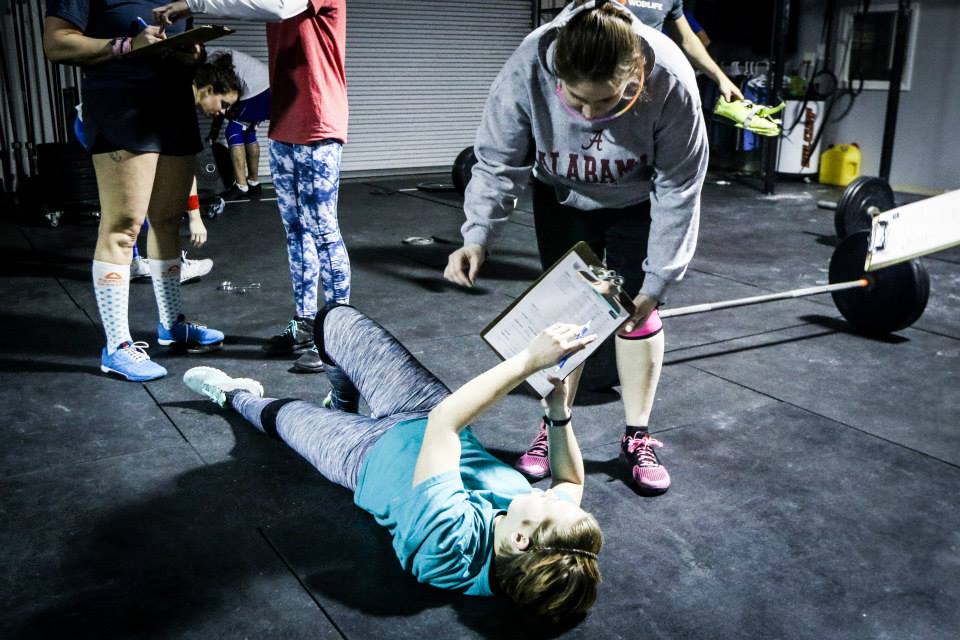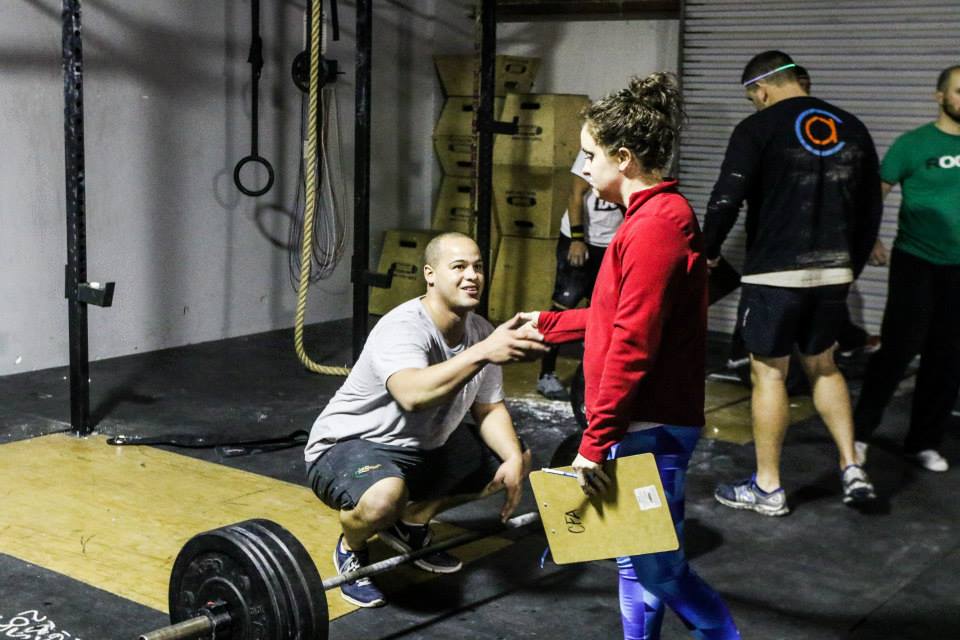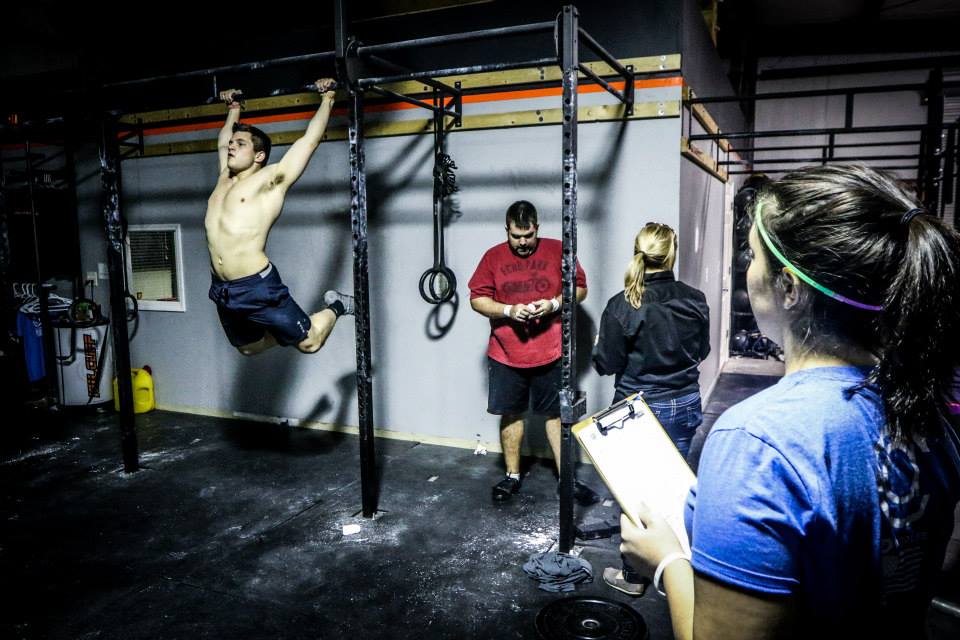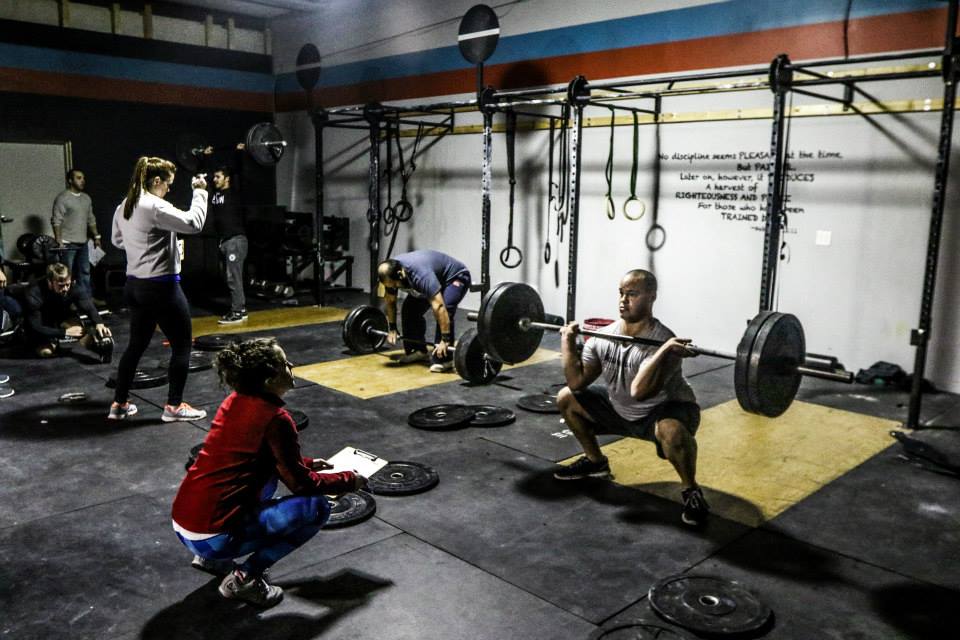
This weekend, CrossFit gyms across the country will be full of athletes competing in 16.1. Some, like me, have the same shot at Regionals as they do of being Batman, but for plenty of others, the Open is the first step on the long road to the CrossFit Games in Carson, California this summer.
In order to validate your score during any part of the Open, you must either perform the Open workout in front of a qualified judge or record your workout to submit to CrossFit HQ.
More than likely, your box owner doesn’t want to judge every athlete individually. The amount of time and coordination that would take far overlaps the four-day time period in which every athlete in your gym has to complete 16.1 and so on. That’s where you come in.
Being a CrossFit judge during the Open can be intimidating. However, you shouldn’t let that hold you back from helping your friends and peers complete and submit their Open workouts. Doing the Open with your box mates, whether it’s as a judge, a competitor, or both, builds community. And everyone knows CrossFit is mainly about burpees, but also about community.
7 Tips for Being a Better CrossFit Judge
1. Take the Online Judges’ Course
When the 2016 CrossFit Open Judges Course was released, it was made clear that this course is required for
“Anyone who intends to manage an affiliate, judge an aspiring regional athlete, or review Open video submissions must take and pass the 2016 CrossFit Judges Course.”
So while taking the course may not be required for every judge, it is required for anyone that is responsible for validating a score.
And if you want to get better at being a judge, you should take the online judges’ course. The course, which costs $10, includes six modules where you will learn about the proper mechanics of common movements that will most likely be seen in the Open.
The course culminates with a final exam that you must pass to be able to validate scores. Also, you must retake this course each year to fulfill this role during the Open. This means anyone and everyone. Rich Froning (hey Rich!) could judge you on 16.1 and it will not be considered valid if he has not taken the 2016 judges’ course.
2. Communicate With Your Athlete

When you judge someone during the Open or any competition, it’s best to communicate as much as possible.
Start by introducing yourself by name. Although chances are your competitor knows the workout standards by heart, run through them one more time and explain what specifically you are looking for — a full hip extension, the chest to touch the bar, etc. — to count the rep.
Each competitor is different. Some people want you to count out loud as they complete their workout whereas others don’t want you to speak at all. Find out what your competitor expects and do your best to fulfill that.
3. Ask the Competitor to Demonstrate Movements
If there are any movements you or your competitor are concerned about, take a minute before the WOD begins to have them physically demonstrate the movement.
If you’re judging Ben Smith, chances are he knows how to do a movement properly. If you’re judging someone like me, there’s a good chance I could be doing a movement incorrectly without even realizing it. Use your best judgement — no athlete wants to feel patronized — and work together to make sure all your ducks are in a row before the clock starts.
4. Don’t Be Scared to No Rep

Repeat after me — I will not bro rep during the Open. I will no rep my best friend. I will no rep my mom. I will no rep Jesus if he so chooses to come work out with us.
When you count an incomplete rep towards someone’s score, you’re hurting everyone. You’re hurting the athlete who does not have an accurate measurement of their achievement and you’re hurting the fellow competitors. Counting bad reps is cheating.
It can be difficult to no rep someone, especially a friend or family member, but think of it as tough love. They know they aren’t doing the movement correctly, you know they aren’t doing the movement correctly and chances are anyone else in your gym watching also knows. Do the right thing.
If you think you may have a problem doing the right thing or that you may be scared to no-rep an intense competitor, sit out on judging. Bring people water and cheer them on instead.
5. Encourage Your Competitor

Most CrossFitters are weirdly addicted to encouragement. Whether we’re giving it or getting it, we’re a jolly old bunch who love to cheer each other along.
Unless your competitor has specified otherwise (see number two) cheer them on! Although there are sure to be plenty of people in your box shouting out words of encouragement, you are one-on-one with your athlete. Not only can they hear you, they’re listening for you to count or affirm their reps. Take advantage of that proximity to push your athlete to their best Open performance yet.
6. Do Not Touch the Equipment
Some competitions and boxes make this clear and others don’t, but never, ever, ever touch an athlete’s equipment while they’re working out.
If their bar starts to roll away, make sure you’re out of the way when they go to retrieve it. If they drop their kettle bell too far away from the rig, it is up to them to retrieve it on the next round.
You are a judge, not a caddy. Not only is it not allowed, but it can technically invalidate their performance. Resist the urge to be friendly and helpful and leave their stuff alone.
7. Stay Calm and Judge On
Sometimes, judging goes bad. I once had a hand-held timer malfunction in the middle of a competition. By the time I realized what had happened, the WOD had already begun. While I was panicking and signaling to my head judge that I needed him to keep time for my athlete (luckily he was running a clock as well) I looked away from my competitor just long enough to lose count of his reps. When he asked me thirty seconds later what rep he was on, I was forced to admit that I wasn’t sure.
It’s a bad feeling. It’s usually a genuine mistake but it leaves your competitor feeling frustrated and rightfully so. There isn’t an easy solution, but a genuine apology is always a good place to start.
Other times, you will have athletes that swear by their (incomplete) reps and who will get angry with you. In these cases, just stay calm and stand your ground. Hot air tends to deflate quickly.
